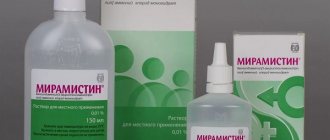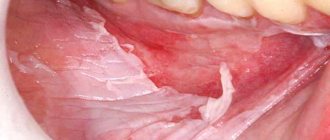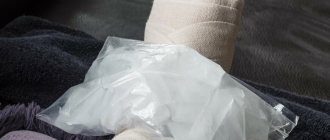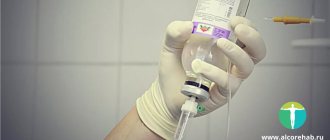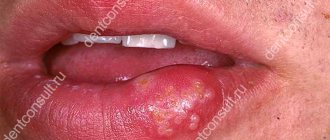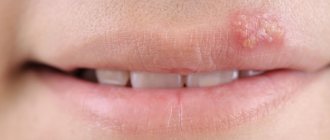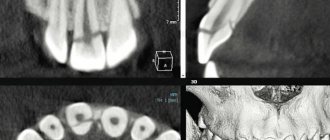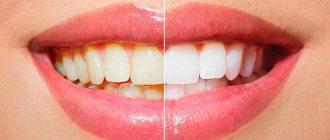- What does a swollen lip look like?
- Reasons for a swollen lip
- What measures to take when your lip is swollen? If your lip is swollen due to a bruise
- If your lip is swollen due to an infectious disease
- If the lip is swollen due to inflammatory processes
- If your lip is swollen due to herpes
- If the lip is swollen due to purulent processes in the oral cavity
- If your lip is swollen due to allergies
- If your lip is swollen due to external factors
- If your lip is swollen due to piercing, tattooing, or plastic surgery
- If your child's lip is swollen
Plump and sensitive lips are the dream of every girl and the external advantage of a young man. Such an external preference can prompt a person to use special cosmetics or even push for surgical intervention, but sometimes this feature develops contrary to our wishes. We are talking about sudden swelling of the lip, when the question naturally arises - what to do when the lip is swollen ?
| An excessively swollen lip is primarily an external defect that you want to get rid of. Moreover, only in rare cases does it occur for no reason; usually it occurs from certain health problems, which are no less important to eliminate. |
Under no circumstances is it possible
- Warm the swollen surface with all sorts of lotions; such actions will only make the swelling even worse. The same recommendation applies to warming ointments.
- Use decorative cosmetics to mask the damage, since these products contain many substances that can cause even greater harm to the damaged surface.
- Eat a meal, especially hot and cold dishes, as well as various solid foods.
- It goes without saying that you should forget about alcohol and smoking during the entire recovery period of the damaged area.
- You should not constantly touch a swollen lip. Firstly, it increases skin irritation, and secondly, it creates favorable conditions for the penetration of pathogenic microorganisms. If there is bleeding, then you can’t stop it with anything, use only sterile materials for this.
It is also advisable to protect the swollen area from direct sunlight and any mechanical influences, including kisses.
To treat edema, use traditional medical and folk remedies. But remember one thing - if you can’t eliminate the swelling on your own, then you need to contact a specialist at a medical facility. This will protect you from the serious consequences of such an event, seemingly insignificant at first glance.
Surgical intervention
Lip wounds with radiating edges require sutures. A local anesthetic is injected into the wound site and the edges are then sutured. The suture is treated with an antiseptic, and then a sterile bandage is applied.
Stitching a wound on the lip
The suture site is checked daily for inflammation. If the healing process is successful, the sutures are removed on the 10th day. Large complex wounds and multiple stitches may require additional assistance from a plastic surgeon.
After suturing, the patient is prescribed medications such as:
After the sutures are removed, the wound is treated with an antiseptic without a sterile dressing. To prevent the development of inflammation in the mouth, rinsing with herbal decoctions, furatsilin and treatment with hydrogen peroxide are recommended.
Stitching outside a medical facility is prohibited. Even with experience, there is a high probability of infection, since it is impossible to achieve infertility at home, which is possible in the operating room.
What to do first
Apply ice or something cold. The effect of low temperature on the surface of the swelling leads to its reduction and relieves pain. But this recommendation only applies if the fabric itself is in good condition. If there is an open wound with bleeding, then only qualified medical care is needed, which involves anesthesia and suturing.
When using ice for a compress, it should be wrapped in gauze or thin cloth. It is not advisable to use it in its pure form, so as not to cause frostbite.
Relief does not come immediately; long-term use of the method is necessary. The compress is kept for 10-15 minutes every 3 hours. The effect occurs within several days of the procedure.
Common causes of hematoma and swelling of the lips
If the lip is bruised with swelling, it causes bleeding and further accumulation of blood as a result of ruptured blood vessels. This is how a hematoma forms. There may be several reasons before an injury:
- fall or blow;
- Inflammation after visiting a dentist or cosmetologist;
- operation;
- biting, cutting, cutting;
- sports injuries.
Bruises of the upper and lower lips most often occur in young children. They cannot sit still and get injured during active games. Athletes involved in sports such as boxing, gymnastics, football, basketball, etc. are also susceptible to bruising.
Pharmacy products to eliminate lip swelling
The most famous and reliable remedy is Badyaga gel. It can be used throughout the day in unlimited quantities. To do this, just apply it to the damaged surface and rub until completely dry. In case of severe acute pain in the damaged area, simply apply a layer of gel to the swelling and wait for it to be absorbed. It helps the regeneration process, relieves swelling, relieves discomfort and protects the skin from drying out and tightening.
Rescuer ointment is also a fairly popular remedy. The principle of operation is the same as that of Badyagi, but the Rescuer is also an antiseptic. In addition, this ointment moisturizes the skin, improves its appearance and relieves pain.
Hydrogen peroxide is also used to disinfect the damaged area. It also relieves swelling and kills pathogens. It is applied to a cotton pad, which is applied to the swollen lip. This action must be performed every two hours. This method is especially effective when lip swelling is associated not with mechanical damage, but with infectious diseases. Its only disadvantage is that hydrogen peroxide dries the skin, which leads to microcracks.
Some people use lead water to make lotions from it. It also relieves swelling well and eliminates pain. It must be cooled before use.
In addition to the listed remedies, doctors recommend using ointments: heparin, troxevasin, lyoton, ketonal and nurofen-gel. These drugs are familiar to absolutely every person and are sold in pharmacies without a prescription.
Important. If you notice purulent discharge or scar formation at the site of injury, you should immediately consult a doctor. The same thing should be done if the hematoma caused by the blow does not resolve for a long time and fluid begins to accumulate at its location. Surgery is required to eliminate these symptoms Otherwise, this can lead to, at a minimum, dysfunction of the oral cavity, and at maximum, pose a threat to life.
Diagnostics
Diagnosis of diseases and pathological conditions accompanied by swelling of the lips is carried out by a dentist. According to indications, patients are referred for consultation to an allergist or oncologist. Objective examination methods are of key importance. The diagnostic program includes the following procedures:
- Survey
. The doctor finds out the time and circumstances of the onset of the symptom, determines other manifestations, and examines the dynamics of the course of the disease. - Physical examination
. The specialist evaluates the localization, severity, and extent of swelling, detects other changes (discoloration, cracks, crusts, ulcers), examines the mucous membranes and skin of other areas, and conducts a dental examination. - Lab tests
. If an endogenous cause of edema is suspected, a biochemical blood test is prescribed. To determine the type and level of differentiation of neoplasms and distinguish cheilitis from other pathologies, a biopsy is performed followed by histological examination. - Allergy tests.
Indicated for allergic reactions, prescribed to clarify the allergen. Skin tests, provocative tests, and other studies are performed. Allergy testing is carried out in a specialized office.
Allergy tests
Traditional methods of treating lip swelling
The first remedy is cabbage leaf. It is applied to the injured area 2 times a day.
A mixture of honey and aloe helps eliminate swelling and has bactericidal properties. Aloe leaves are crushed, added to honey and mixed until smooth. Those who are allergic to honey can only use aloe vera.
A mixture of castor oil, honey and wormwood is also effective. Wormwood is also finely crushed and added to honey along with castor oil. Stir until smooth and apply to the swollen lip for 15 minutes twice a day.
As a compress, you can use a decoction of wild rosemary flowers. To do this, take 1 teaspoon of the plant and pour a glass of boiling water, keep it on low heat for 15 minutes, then cool it to room temperature and make lotions twice a day. Before use, the decoction must be filtered.
You can make lotions from potato starch. To do this, it is mixed with water until a paste-like mass is formed and applied to the swelling 2 times a day.
A popular compress is tea bags used to brew tea. They are cooled to room temperature and kept on the injured area for 5 minutes.
Another available method is to use baking soda. It is diluted in water until a creamy consistency is formed and lotions are applied for 20 minutes once a day. However, this method is not recommended for use in the presence of open lip injuries.
The fastest way to eliminate swelling is a celandine compress. Its use allows you to get rid of an unpleasant symptom in just a few times. But, this method requires extreme caution, since the plant is poisonous to the human body and, if used incorrectly, can cause serious burns to the skin.
First aid for cutting
Falling off a swing and hitting your lip and nose is a common occurrence. Soft tissues are easy to break, bite, and as a result they can swell and swell. The main condition when receiving an injury is to remain calm. As soon as the liquid has stopped oozing, you should begin treating the wound.
First aid when a child breaks his lip is to rinse the wound with warm water and treat it with an antiseptic. It is important to wash your face with soap to remove dirt and blood; dirty hands can easily introduce infection into the wound surface. If an injury occurs to a baby, you need to consult a doctor; any injury is dangerous for the child.
If a small amount of blood is released from the wound, you should rinse your mouth with chlorhexidine or miramistine. This is done if the child is an adult. Small children need to lubricate the outside of the lip with a cotton swab. Apply a cold compress (ice or a cold metal object covered with a towel) to relieve swelling. You need to remove the bandage after 15 minutes.
A small piece of bandage or cotton wool pressed between your lips and teeth will help stop blood seepage. It is necessary to ensure that the tampon only absorbs the liquid and does not stick to the wound.
Treating the damaged area with brilliant green or iodine is strictly prohibited to prevent burns.
An effective folk method is to apply cotton wool with aloe juice to the broken area. The plant leaf is cut lengthwise and applied to the wound. Aloe has disinfectant and anti-inflammatory properties, thanks to which you can heal the wound.
You should seek medical help if the bleeding cannot be stopped, the gums are damaged, a tooth is knocked out, or there is a high fever. If the internal cut is large, it will need to be stitched up in the hospital.
How to protect your child from lip injury?
Even an adult can break their lip, let alone children. But you can still reduce the risk of injury. For this:
- Explain to your child the rules of behavior while walking, on the playground, near swings, horizontal bars and carousels;
- Buy comfortable shoes for your baby with stable, non-slip soles and fastening fasteners;
- remove from children's clothing all parts that can get caught on surrounding objects and cause injury to the child;
- always put on protective equipment for your child (helmet, knee pads, elbow pads) if he is skating, cycling, skateboarding or scootering;
- always look after your child;
- do not leave the baby alone at home if the windows are open;
- always put sharp objects out of reach of the baby;
- In a car, transport your child only in a child seat;
- Fill your first aid kit with all the necessary first aid supplies for injuries.
A child can fall and break his lip at any age and even with the most vigilant supervision of parents - alas, no one is immune from this. Therefore, it is worth preparing for possible emergency situations, and if this happens, meet it fully armed. Remember that your composure, confidence in actions and care will quickly return the baby to its previous activity.
Comments ()
Healing process
In order for treatment to be quick and effective, the specific location of the injury must be taken into account. A healing lip cut is constantly exposed to various influences, because in most cases a person cannot ensure absolute immobility of fresh sutures. The wound is disturbed during conversation or eating, so at least for the first couple of days it is recommended that speech rest and a diet that does not require active chewing movements. This is especially true if the dissection is accompanied by injury to the gums and teeth.

